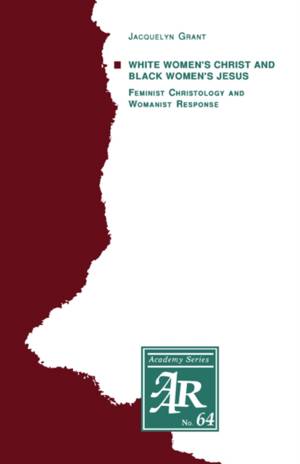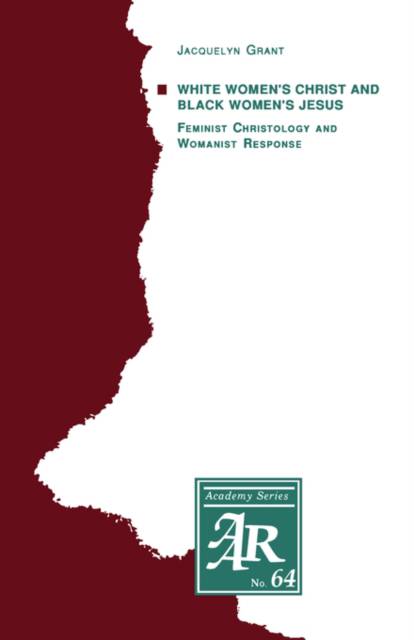
- Afhalen na 1 uur in een winkel met voorraad
- Gratis thuislevering in België vanaf € 30
- Ruim aanbod met 7 miljoen producten
- Afhalen na 1 uur in een winkel met voorraad
- Gratis thuislevering in België vanaf € 30
- Ruim aanbod met 7 miljoen producten
Zoeken
White Women's Christ and Black Women's Jesus
Feminist Christology and Womanist Response
Jacquelyn Grant
€ 93,45
+ 186 punten
Omschrijving
Christology is especially problematic for feminists. Because Jesus was undeniably male and because the Christian church claims him as the unique God-bearer, feminist christology confronts the dual tasks of explaining the significance of a male God-bearer for women and creating a christological model adequate to feminist experience. Jacquelyn Grant rehearses the development and challenges of feminist christology and argues that, because it has reflected the experience of White women predominantly, it fails to speak to the concerns of non-white and non-western women. In response to this failure, Grant proposes a womanist theology and christology that emerge from and are adequate to the reality of contemporary Black women.
Specificaties
Betrokkenen
- Auteur(s):
- Uitgeverij:
Inhoud
- Aantal bladzijden:
- 280
- Taal:
- Engels
- Reeks:
- Reeksnummer:
- nr. 64
Eigenschappen
- Productcode (EAN):
- 9781555403034
- Verschijningsdatum:
- 2/01/1989
- Uitvoering:
- Paperback
- Formaat:
- Trade paperback (VS)
- Afmetingen:
- 142 mm x 217 mm
- Gewicht:
- 367 g

Alleen bij Standaard Boekhandel
+ 186 punten op je klantenkaart van Standaard Boekhandel
Beoordelingen
We publiceren alleen reviews die voldoen aan de voorwaarden voor reviews. Bekijk onze voorwaarden voor reviews.











